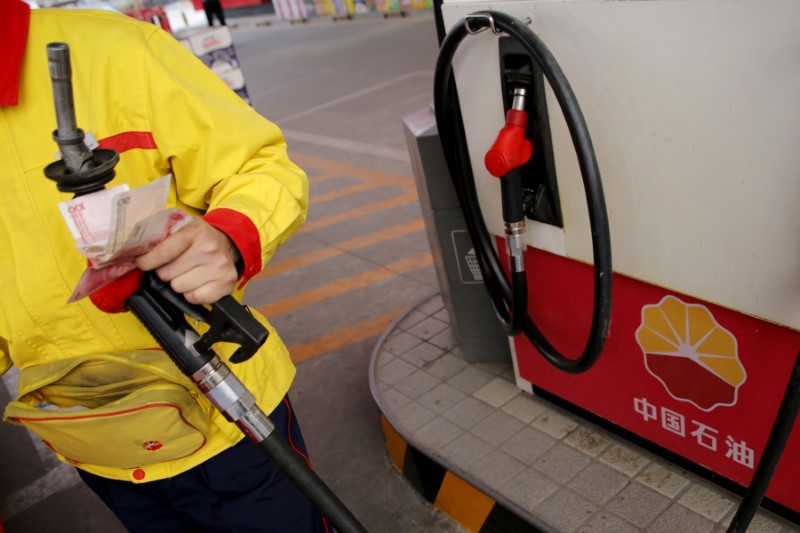Asahi shares mark weekly slide after cyberattack halts production
Investing.com -- Oil prices settled lower Thursday as OPEC+ members agreed to make additional voluntary production cuts that fell short of estimates amid signs of ongoing divisions among members for deeper production cuts.
By 14:30 ET (19:30 GMT), U.S. crude futures settled 2.4% lower at $75.96 a barrel and the Brent contract fell 0.3% at $82.83 a barrel.
OPEC+ production cut agreements underwhelm
Excluding Saudi and Russian production cuts, OPEC+ members plan to make additional voluntary production cuts, totalling about 684,000 barrels per day, which fell short of expectations for cuts of about 1 million barrels.
In unusual move that points to signs of potential divisions in the group, the plans for voluntary cuts were announced by individual OPEC+ members that than the secretariat.
Saudi Arabia pledged to extend its voluntary cut of 1 million barrels per day until the end of Q1, while Russia said it would deepen its crude export curbs to 500,000 bpd from 300,000 bpd previously.
Dollar rebound to keep lid on oil prices despite ongoing slowdown in inflation
The dollar jumped on Thursday, keeping a lid on oil prices even as data showed that inflation continued to slow October.
The October personal consumption expenditures price index,preferred inflation measure, slowed to a 0% pace, compared with forecasts for a 0.1% rise, from a 0.4% pace last month, taking the annualized figure to 3.4%, down from 3.7% the prior month.
As oil is priced in dollars, a stronger greenback makes the commodity less attractive to foreign buyers.
Bearish U.S. inventories continue to weigh
The bearish report from the Energy Information Administration, meanwhile, also continued to weigh on sentiment as U.S. crude inventories rise by an unexpected 1.6 million barrels in the week to Nov. 24, confounding expectations for a small draw.
The unexpected build in supplies comes as signs of continued economic decline China spurred concerns about the demand outlook. The country built up a large level of stockpiles this year, which could reduce its appetite for crude imports going into 2024.
(Peter Nurse and Ambar Warrick contributed to this report)
